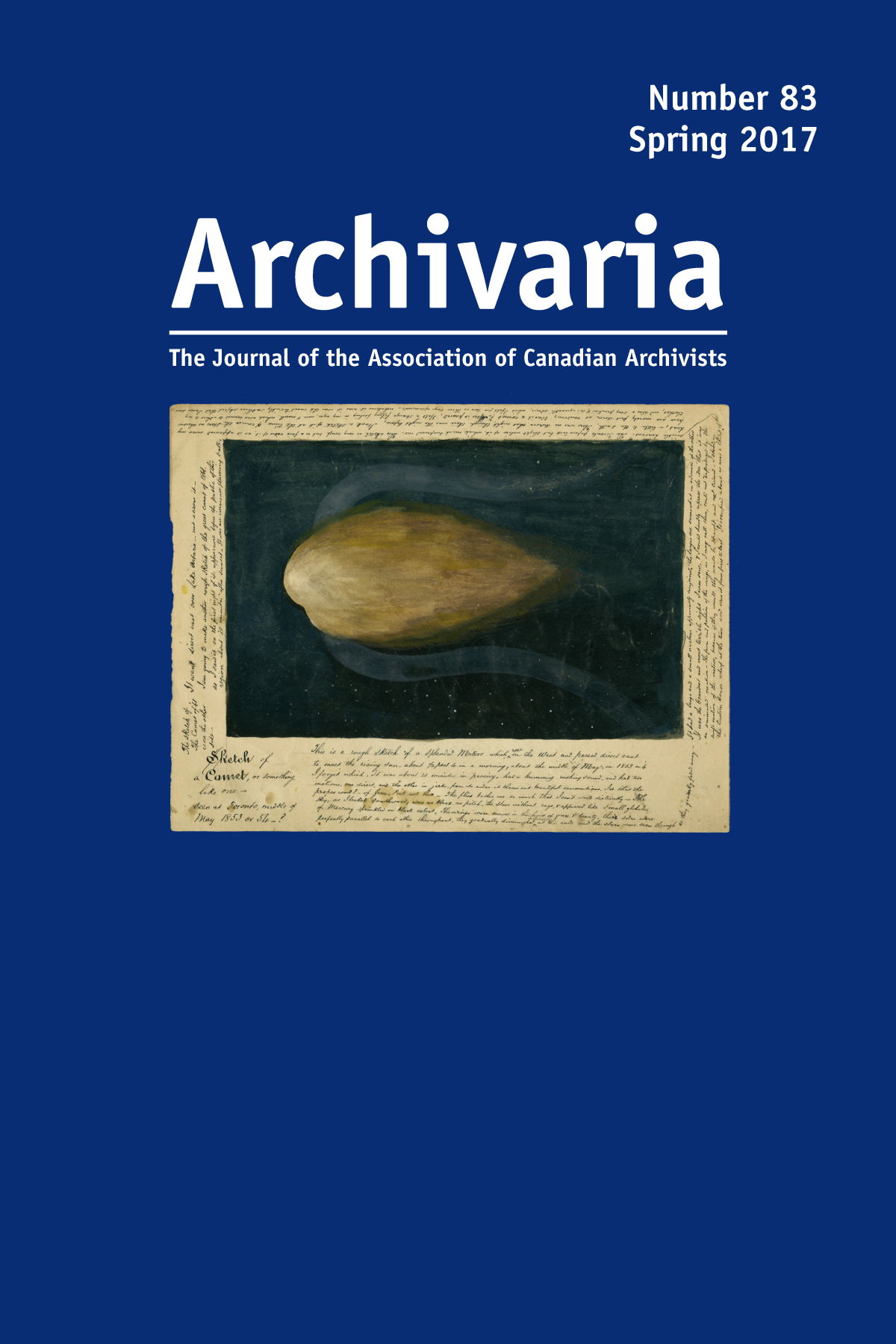Learning to Listen: Archival Sound Recordings and Indigenous Cultural and Intellectual Property
Abstract
Intellectual property concerns and sound recordings have a complex relationship: the publication status of recordings is intertwined with worries about the age and vulnerability of their physical carriers. These concerns affect both the access to and the preservation of archival sound recordings. Although unpublished ethnographic field recordings of Indigenous songs, stories, and oral histories can seem like straightforward cases for access, these recordings exist in a unique ethical context. This is characterized by the historic power imbalance between Indigenous nations, non-Indigenous researchers, and settler-colonial state powers, as well as a clash between Western intellectual property law and Indigenous legal orders. This article explores the nature of Indigenous cultural and intellectual property in sound archives, aiming to increase understanding and acknowledgement of Indigenous protocols in the archival profession. It suggests that collaborating with Indigenous partners in decision making about access and taking a nuanced view of intellectual property and ownership are necessary for proper care of non-Indigenous archives.
RÉSUMÉ
Les enregistrements sonores et les préoccupations liées à la propriété intellectuelle ont une relation complexe : le statut de publication des enregistrements est entrelacé avec des craintes au sujet de l’âge et de la vulnérabilité des supports physiques. Ces préoccupations affectent à la fois l’accès aux enregistrements sonores archivistiques et leur préservation. En dépit du fait que des enregistrements ethnographiques sur le terrain de chansons, contes et histoire orale autochtones peuvent sembler comme des cas simples en matière d’accès, ces enregistrements existent dans un contexte éthique unique. Ceci est caractérisé par le déséquilibre historique du pouvoir entre les nations autochtones, les chercheurs non-autochtones et le pouvoir étatique de l’État colonial, aussi bien que par la confrontation entre le droit occidental de la propriété intellectuelle et les ordres juridiques autochtones. Cet article explore la nature de la propriété culturelle et intellectuelle autochtones dans les archives sonores, visant à améliorer la compréhension et la reconnaissance des protocoles autochtones dans la profession archivistique. Il suggère que collaborer avec les partenaires autochtones dans la prise de décision au sujet de l’accès et adopter une vision nuancée de la propriété intellectuelle et de la possession sont nécessaires pour la sauvegarde convenable des archives non-autochtones.
Authors of manuscripts accepted for publication retain copyright in their work. They are required to sign the Agreement on Authors' Rights and Responsibilities that permits Archivaria to publish and disseminate the work in print and electronically. In the same agreement, authors are required to confirm that "the material submitted for publication in Archivaria, both in its paper and electronic versions, including reproductions of other works (e.g. photographs, maps, etc.) does not infringe upon any existing copyright." Authors of manuscripts accepted for publication retain copyright in their work and are able to publish their articles in institutional repositories or elsewhere as long as the piece is posted after its original appearance on archivaria.ca. Any reproduction within one year following the date of this agreement requires the permission of the General Editor.





